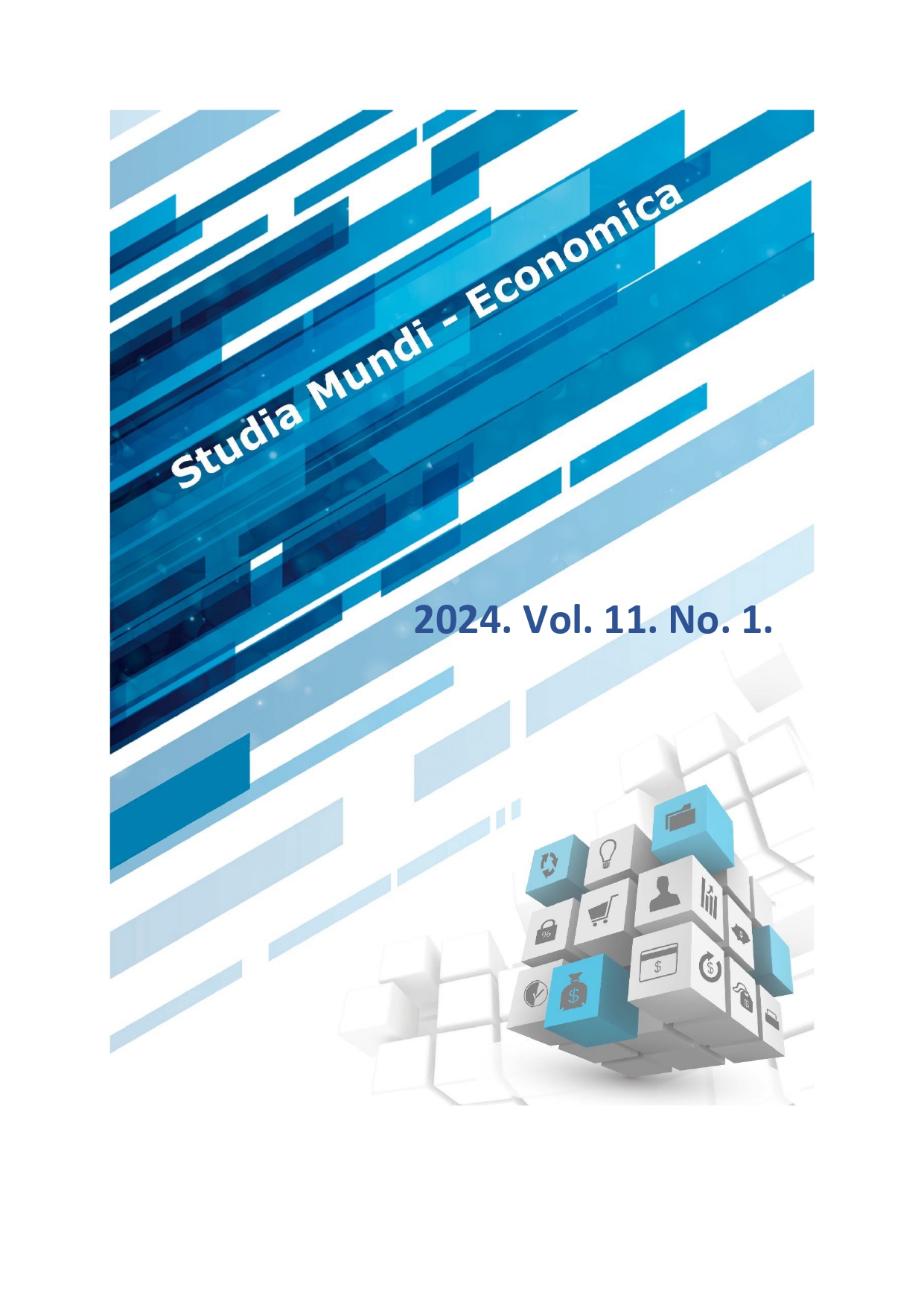The connection between the smart city concept and human resource management, with a special focus on the role of competences and corporate competitiveness
DOI:
https://doi.org/10.18531/sme.vol.11.no.1.pp.55-67Schlagwörter:
smart city, competences, competitiveness, human resourcesAbstract
The trend today is that more and more cities are becoming smart. This process can be strengthened if a municipality has a high proportion of well-educated workers with the right competences who can contribute to the excellence of a company by increasing the competitiveness of the organisation and the city. In addition, other economic, environmental and social factors, such as increasing GDP and employment rates, reducing environmental impacts, etc., are necessary to become a smart city. The literature review has clarified the key concepts and highlighted the importance of the topic. Our research has analysed the capital cities of the Visegrad Group in 6 dimensions, using a total of 19 indicators, and has determined their index values per dimension and complexity. The focus of our research was on the people dimension. The aim of this research is to explore the index scores per dimension and the complex index scores of the cities under study. Bratislava scored the highest in this dimension, with Prague coming second. Warsaw came third and Budapest last in the comparison. In terms of the complex index, Bratislava is the smartest of the cities surveyed.
Literaturhinweise
Árvai, A. (2022): Az okos város fogalom megjelenése a magyar közép- és nagyvárosok fejlesztési dokumentumaiban. Földrajzi Közlemények, 146. 1., p. 16–32., https://doi.org/10.32643/fk.146.1.2
Caprotti, F. (2020): Smart to green: smart eco-cities in the green economy. In: Willis, K. S. and A. Aurigi (eds.), The Routledge Companion to Smart Cities, London: Routledge
Chikán, A., Czakó, E., Kazainé Ónodi, A. (2009): Gazdasági versenyképességünk vállalati nézőpontból – Versenyben a világgal, Budapesti Corvinus Egyetem Vállalatgazdaságtan Intézet Versenyképesség Kutató Központ, Kutatási Program. Zárótanulmány
Chourabi, H., Nam, T., Walker, S. (2012): Understanding Smart Cities: An Integrative Framework. 45th Hawaii International Conference on System Sciences, 2289–2297
Dajnoki, K., Héder, M. (2017): „Új szelek fújnak” – a HR válasza a globalizáció és a változás kihívásaira. Hadtudomány, 2017. évi elektronikus lapszám, https://doi.org/10.17047/HADTUD.2017.27.E.84
El-Meouch, N. M., Máté, É., Trócsányi, A., Pirisi, G., Alpek, B. L. (2024). The Structural and Territorial Impact of the Coronavirus Crisis on the Vulnerability of the Hungarian Corporate Sector. Modern Geográfia, 19(1), 147–174. https://doi.org/10.15170/MG.2024.19.01.09
Giffinger, R., Fertner, C., Kramar, H., Meijers, E. (2007): City-ranking of European Medium-Sized Cities, http://www.smart-cities.eu/download/city_ranking_final.pdf
Greutter-Gregus, É., Koncz, G., Némediné Kollár, K. (2024): Okos települések fogalmi áttekintése és hatékonyságuk mérésének lehetőségei. A Falu, 39:1 pp. 5-25, 21 p.
Hajdú, D. (2021): The effect of the coronavirus (SARS COV-2) on training for jobseekers in Hungary. Economic and Regional Studies, Volume 14, No. 1, https://doi.org/10.2478/ers-2021-0006
Howard, E. (1902): Garden cities of tomorrow. London: Faber and Faber
Jámbor, A. (2018): Smart city: nemzetközi koncepciók a XXI. században. Publicationes Universitatis Miskolcinensis, Sectio Juridica et Politica, Tomus XXXVI/1, p. 60–74.
Kocsis, J. B., Gere, L. (2021): Okos város globális nézőpontból. Századvég, 1.évf 1.szám, p. 101–129.,https://szazadvegfolyoirat.hu/wp-content/uploads/2023/09/Szazadveg_2021_01_05_Okos-varos-globalis-nezopontbol.pdf
Krugman, P.R. (1994): Competitiveness: A Dangerous Obsession, Foreign Affairs, Vol. 73., No. 2, March/April, 28–45.
Lengyel, I. (2003): Verseny és területi fejlődés, JATEPress,
Mahiznan, A. (1999): Smart cities: The Singapore case. Science Direct, Volume 16, Issue 1, February 1999, p. 13–18, https://doi.org/10.1016/S0264-2751(98)00050-X
Márkus, G. Pótó, Zs., Zsibók, Zs., Soós, J., Schmuck, R., Duczon, Á. (2008): A mikroszintű regionális versenyképesség mérése. Vállalkozás Innováció, 2. évf. (1), pp. 30–53.
McClelland, D.C. (1973): Testing for competence rather than for „intelligence”. American Psychologist, 28, 1–14. p.
Nam, T., Pardo, T. A. (2011): Conceptualizing Smart City with Dimensions of Technology, People, and lnstitutions. Proceedings of the 12th Annual lntemational Conference on Digital, Government Research, p. 285.
Némethy, K. (2019): A jövő munkahelyének HR igény változásai a robotizáció és a fenntartható fejlődés tükrében. Doktori értekezés tézisei, Szent István Egyetem, https://real-phd.mtak.hu/1592/2/nemethy_krisztina_tezis.pdf
Porter, M. E. (1990): The Competitive Advantage of Nations. New York, The Free Press
Söderström, O., Paasche, T., Klauser, F. (2014): Smart cities as corporate storytelling. City, 18(3), p.307–320, https:// DOI:10.1080/13604813.2014.906716
Spencer, L.M., Spencer, S. M. Jr. (1993): Competence at Work: Models for Superior Performance. Boston: Wiley. 384 p.
Tóthné Téglás, T. (2016): Kompetencia vállalati, munkavállalói és felsőoktatás szemmel, In: Csiszárik-Kocsir, Á. (szerk.): Vállalkozásfejlesztés a XXI. században V., Óbudai Egyetem Keleti Károly Gazdasági Kar, Budapest
Ulrich, D. (1996): The Human Resource Champions. Harvard Business Review Press, Boston
Varga, E., Szira, Z. (2018): A kompetenciamodellek szerepe az oktatásban és az emberi erőforrásmenedzsmentben. Üzlet - Tradíció – Innováció, Szent István Egyetem Gazdaság- és Társadalomtudományi Kar Üzleti Tudományok Intézete, Tanulmánykötet II.
Veresné Somosi, M. (2013): Teljesítményalapú szervezetalakítás elmélete és módszertana. Miskolci Egyetemi Kiadó
Vörös, J. (2010): Termelés- és szolgáltatásmenedzsment, Budapest, Akadémiai Kiadó, 367 p.
Winters, J. V. (2010): Why Are Smaft Cities Growing? Who Moves and Who Stays? Journal of Regional Science, 20(10), p. 2–4.
Z. Karvalics, L., Kollányi, B. (2006): Humán tőke és versenyképesség, In Vértes A. – Viszt E. (Ed.): Tanulmányok Magyarország versenyképességéről, Budapest: Új Mandátum Kvk., pp. 109–132.
Internet resources
arup.com (2024): Warsaw targets climate neutrality and resilience with Green City Action Plan, https://www.arup.com/projects/warsaws-green-vision-green-city-action-plan Letöltve: 2024. 04. 14.
Bod, P. Á. (2021).: a munkaerőpiaci nehézségek még okozhatnak problémákat. https://privatbankar.hu/cikkek/makro/bod-peter-akos-a-munkaeropiaci-nehezsegek-meg-okozhatnak-problemakat.html. Letöltve: 2024.03.30.
IMD (2021): Smart City Ranking 2021, https://imd.cld.bz/Smart-City-Index-2021
Streitfeld, D. (2018): Welcome to Zucktown. The New York Times, március 21. https://www.nytimes.com/2018/03/21/technology/facebook-zucktown-willow-village.html
universityguru.com (2024): Universities in Bratislava, Slovakia - Rankings & Reviews, https://www.universityguru.com/universities-bratislava Letöltve: 2024. 04. 14.
Downloads
Veröffentlicht
Ausgabe
Rubrik
Lizenz
Copyright (c) 2024 Éva Greutter-Gregus, Zoltán Gergely Greutter

Dieses Werk steht unter der Lizenz Creative Commons Namensnennung - Nicht-kommerziell - Keine Bearbeitungen 4.0 International.
A folyóirat Open Access (Gold). Cikkeire a Creative Commons 4.0 standard licenc alábbi típusa vonatkozik: CC-BY-NC-ND-4.0. Ennek értelmében a mű szabadon másolható, terjeszthető, bemutatható és előadható, azonban nem használható fel kereskedelmi célokra (NC), továbbá nem módosítható és nem készíthető belőle átdolgozás, származékos mű (ND). A licenc alapján a szerző vagy a jogosult által meghatározott módon fel kell tüntetni a szerző nevét és a szerzői mű címét (BY).






